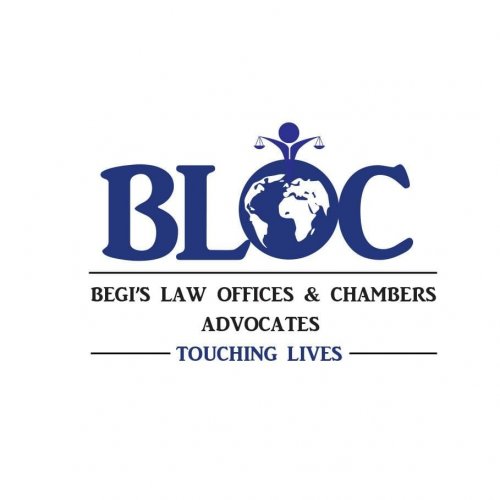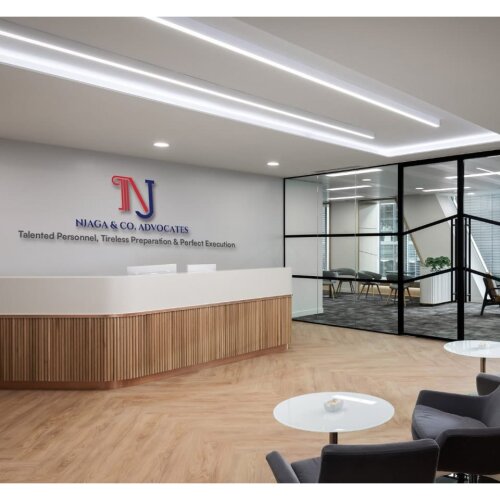Best Collaborative Law Lawyers in Nairobi
Share your needs with us, get contacted by law firms.
Free. Takes 2 min.
Free Guide to Hiring a Family Lawyer
List of the best lawyers in Nairobi, Kenya
Legal guides written by Adroit Law LLP:
- Kenya Launches Digital Nomad Visa: A Gateway for Remote Workers
- Navigating the Payment System License Maze in Kenya
- Navigating the Complexities of Mining Licenses and Permits in Kenya: A Look into Artisanal and Large-Scale Operations
About Collaborative Law in Nairobi, Kenya
Collaborative Law in Nairobi, Kenya is a legal approach that encourages dispute resolution through negotiation and problem solving rather than litigation. Particularly popular within the family law sector, Collaborative Law encourages all parties involved to work constructively towards finding a mutually beneficial solution, with the assistance of legal advisors and relevant professionals.
Why You May Need a Lawyer
Lawyers trained in Collaborative Law can be particularly helpful when resolving family disputes such as divorce, child custody, and property settlement. This method of dispute resolution can minimize hostility and emotional stress, promoting respectful dialogue aimed at reaching the best solution possible for all parties involved.
Local Laws Overview
The Children’s Act 2001, Matrimonial Property Act 2013, and the Marriage Act 2014 are some Kenyan laws particularly relevant to Collaborative Law as they govern aspects of child custody, property division, and marriage respectively. Collaborative lawyers work within the framework of these and other relevant Kenyan laws to facilitate resolution.
Frequently Asked Questions
What is the main benefit of choosing Collaborative Law?
Choosing Collaborative Law can result in less acrimony and emotional stress because it encourages negotiation and agreement rather than engaging in confrontational litigation.
What happens if we can't reach an agreement with Collaborative Law?
If you cannot reach a settlement through Collaborative Law, you still have the right to take your disputes to court. However, often the lawyers involved in the collaborative process cannot represent you in court under the Collaborative Law agreement.
Do I need a specific kind of lawyer for this process?
Yes, not all lawyers are trained in Collaborative Law. Only lawyers who have received specific training in this area of law can effectively facilitate this process.
Is Collaborative Law only used for family disputes?
No, it can be used for any legal matter that involves an element of dispute or conflict such as employment disputes, commercial disputes, and inheritance issues.
Can Collaborative Law resolve international disputes?
Yes, provided that all parties involved agree to use this method, Collaborative Law can resolve international disputes.
Additional Resources
You can visit the Law Society of Kenya's website or the International Academy of Collaborative Professionals website for further information on Collaborative Law in Nairobi, Kenya. The Judiciary of Kenya’s Family Division offers further resources in family law matters.
Next Steps
If you require legal assistance in Collaborative Law, research and reach out to law firms in Nairobi that specialize in Collaborative Law. Prior to hiring a lawyer, ensure they have had specific training in Collaborative Law practice and possess enough experience in handling collaborative disputes.
Lawzana helps you find the best lawyers and law firms in Nairobi through a curated and pre-screened list of qualified legal professionals. Our platform offers rankings and detailed profiles of attorneys and law firms, allowing you to compare based on practice areas, including Collaborative Law, experience, and client feedback.
Each profile includes a description of the firm's areas of practice, client reviews, team members and partners, year of establishment, spoken languages, office locations, contact information, social media presence, and any published articles or resources. Most firms on our platform speak English and are experienced in both local and international legal matters.
Get a quote from top-rated law firms in Nairobi, Kenya — quickly, securely, and without unnecessary hassle.
Disclaimer:
The information provided on this page is for general informational purposes only and does not constitute legal advice. While we strive to ensure the accuracy and relevance of the content, legal information may change over time, and interpretations of the law can vary. You should always consult with a qualified legal professional for advice specific to your situation.
We disclaim all liability for actions taken or not taken based on the content of this page. If you believe any information is incorrect or outdated, please contact us, and we will review and update it where appropriate.
















